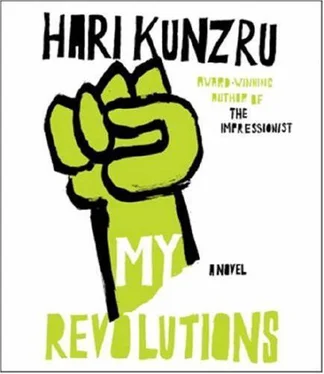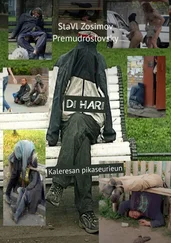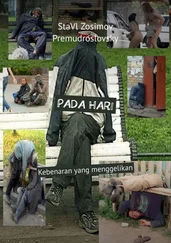After lunch a pair of council officials turned up, along with a vanload of workmen from the housing department and about a dozen police constables, who positioned themselves on the far side of the road and did a little shuffling dance in the cold. The council officials demanded that we let them in. We refused. They threatened us with legal consequences. We asked them whether they were ashamed of what they did for a living. In the middle of this, Ivy Castle leaned out of the bedroom window and gave them a piece of her mind. It was, in the end, Ivy’s towering rage that carried the day. She told them she’d had enough. She told them she wasn’t going to put up with it anymore. The men from the council couldn’t take the pressure for very long. They got back into their van and left.
On Christmas morning we celebrated with the Castle children. Someone had donated a tree. Ivy cried and hugged people indiscriminately. The standoff continued into the new year. While her husband retreated into the background, smoking roll-ups and moaning that the house was cold, Ivy found a vocation. Everyone who stood in front of her, whether journalist, councillor, or pompous local MP, received the same full-in-the-face torrent of indignation. Sometimes we had to restrain her, nervous that years of pent-up frustration were leading the stabbing cigarette too close
to an official face, or tempting the right hand into an administrative slap. I saw in 1969 in the boarded-up living room. Three days later someone pushed a rent book through the letterbox. The Castles could stay put. We’d won.
Late that night, after a riotous victory party, Anna dragged me into the deserted street outside the Castles’ house. We were drunk. The overpass loomed above us. Her normal reserve had dissolved completely, replaced with a fierce libidinal intensity. “Come on, Chrissy-boy,” she told me. “Now’s your chance.” Pressed into a doorway like a couple of teenagers, we mashed our faces together and fumbled at each other’s clothes, icy fingers digging under coats and sweaters, our breath misting in the freezing night air.
That night we slept together on her mattress at Lansdowne Road, in the room she’d painted white and emptied of every possession but a battered metal trunk of clothes and books. The room was cold and we were high and sometimes I’d briefly hallucinate that we were statues or corpses, an instant of lost time before I was jolted back to the slick panting tangle of our fucking, her mouth on my cock, my tongue lapping and sucking at her breasts, her cunt. It was these words she wanted to say and for me to say to her, cunt, spunk, asshole , as if to scrape the act bare, purify it of sentiment.
It felt like a coronation, such a violent release from the frustration of wanting her. Afterward she lay in my arms and I felt, narcissistically, that we’d sealed some kind of bargain.
Early the next morning I woke up to find Sean sitting at the end of the bed, shirtless, smoking a roach he’d fished out of last night’s overflowing ashtray. Anna was asleep next to me, one arm thrown over my chest. He was examining us, a curious look on his face. In the gray half-light the blurred tattoo on his chest was an amorphous stain, a Rorschach blot. I asked him where he’d left Claire and he grinned humorlessly. After that something changed between the two of us. I was no longer an observer of the game he was playing with Anna. I’d earned full participant status. Being Sean’s rival (the term seems archaic, with its overtones of chivalry,
and somehow coy, evasive) committed me to something. To the group. To whatever it was we were all daring one another to do. I’d thought of leaving once or twice, of going traveling or just finding somewhere else to live. Now I put those ideas from my mind.
A month or so later, as we were planning our next action, Charlie Collinson turned up. He was making one of his periodic visits back home to sell the rugs and jewelry (and the charras ) he’d picked up in India. It was the first time I’d met the owner of the Lansdowne Road house. With his long, matted hair, his beads and mirror-work waistcoats, he was an alien presence in our increasingly puritanical group. By early 1969, Lands End, as we’d started to call it, had more or less become a formal commune, with an exclusive and fairly stable membership, a habit of collective decision making and a grueling schedule of meetings at which personal and political issues were debated with a sort of Möbius-strip logic that made them indistinguishable from one another. Charlie was a lotus-eater, rich and not particularly bright. He was unselfconscious about his status as landlord, moving his things back into “his” room and expecting the people staying there to make themselves scarce. He was obviously used to having his banalities about love and peace taken seriously and was shocked when Anna called him a “neocolonialist parasite” as he was showing off a batch of silver necklaces he’d bought in Ladakh. The atmosphere of round-the-clock revolutionary preparation freaked him out. He’d left behind a scene of genteel Bohemianism, but things had moved on, fast.
Above all, Charlie wanted the printing press gone. Sean and Jay had moved an ancient offset machine into the sitting room, a monstrous thing that was kept working by a mixture of improvisation and brute force; at most times of the day or night someone was tending it, doing repairs or running off leaflets. Stakhanovite slogans were painted on the wall behind it. The floorboards were stained with ink. Charlie wanted it out. He also wanted at least half the residents out. He wanted the women’s group to stop using the place for teach-ins. “It’s my own fucking house,” I overheard
him complain to someone on the phone, “and these dykes want me to leave whenever they’re hanging about in the kitchen.”
One day, Sean called a meeting. Charlie had indicated that he wasn’t happy. How were we going to accommodate ourselves to his wishes? Should we move the press, ask the women to meet somewhere else? We decided that to make any concessions would be objectively Imperialist. The fault lay with Charlie, not us. He was politically backward. He needed re-education. When he came home he was told that if he wanted to participate in the household he would be welcome to do so, but he had to commit, as we were committed, to the project of forming a disciplined vanguard, to being one of an exemplary group of people who could credibly go out to the workers, raise consciousness through agitation and propaganda, and grow the movement to the point where overthrow of the capitalist state would become feasible. He was told he fell short in several ways. There was the whole area of individualism. There was the implicit racism of his business activities.
“A pig?” he shouted. “You’re in my house and you’re calling me a pig?”
“You never let anyone forget that you own the house. That’s one of the things that makes you a pig. You think you deserve more respect because you’re a property owner.”
“It’s my fucking house.”
“Why should that give you a greater say than any other resident?”
“It’s not — for Christ’s sake, you’re not even paying me rent. I don’t even know most of you people.”
I have to say I never expected Charlie to call the police. He didn’t even tell us. The first we knew about it was when a patrol car pulled up outside. Sean was so livid that he punched Charlie in the face. People were scaling the back fence. Sitting on the kitchen floor clutching his jaw, Charlie suddenly remembered the five pounds of hash stashed in his room, sewn up in leather cushion covers. He spent the next twenty minutes on the doorstep trying to get them to go away again.
After that, for obvious reasons, we had to leave.
Читать дальше












